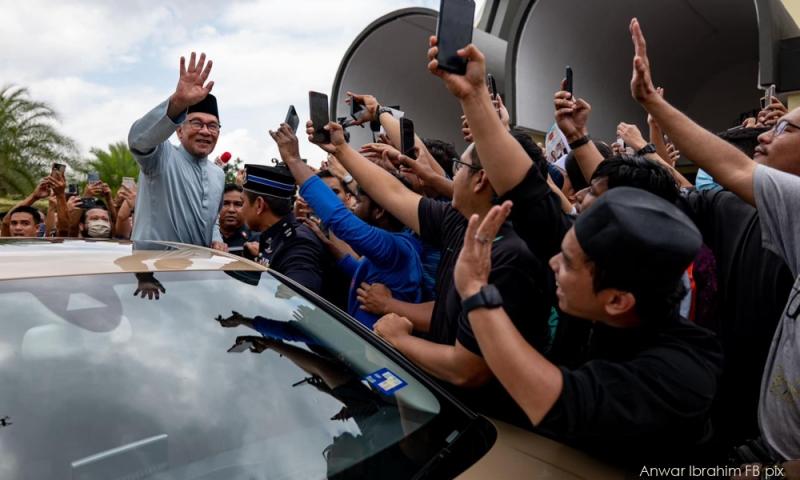
Published by MalayMail, Malaysiakini & FocusMalaysia, image by Malaysiakini.
One can be forgiven for overlooking the need to recap the year behind us. 2022 was characterized – domestically and on the global stage – as lurching from one dumpster fire to another: from the war in Ukraine and the ensuing energy crisis, to economic recession, food inflation, collapsing asset prices, liquidity squeezes and the stubbornly lingering effects of the pandemic.
Every cloud has its silver lining, however, and hotly fought contests late in the year in politics, markets (and football) have each brought in the spotlight of change, which, if taken at its helm, holds great promise. So, rather than doom and gloom, this year-end ode carries a hopeful message for an Innovation Nation in the making.
In Putrajaya, a newly elected administration is settling in, with a renewed focus on international (or at very least regional) engagement. In stark contrast to an inward-looking inclination of successive predecessor governments, the attitude of Datuk Seri Anwar Ibrahim’s (AI’s) government has changed decisively from ‘isolation’ to ‘innovation’.
This transition, critically needed at this moment in the history of our Nation’s development, must be empowered with an optimism and open-mindedness both notably missing in the Malaysian narrative for years, since the Asian financial crisis when AI’s last attempt for ‘Reformasi’ was thwarted.
In the Asian Tiger growth era, South-East Asian countries rapidly transformed into growth-fuelled developing economies, accompanied with corresponding upheavals in infrastructure, education, commerce, and profession, all of which saw Malaysia keeping pace with the technical innovations of the day. Despite many challenges brought on by this amazing growth spurt, the resulting leap forward in progress was a great source of National pride, ushering in vast improvements in living standards and quality of life.
Since then, a Fourth Industrial Revolution (4IR) – anchored in digital transformation – has been gathering momentum, accelerated and catalysed by the global pandemic from which we’re still emerging; a digital migration from which it should be apparent there is no turning back from.
This sets the stage for the next milestone shift, based on an Innovation Agenda, that recognizes pain-points across government, society and the economy and proposes digital solutions to resolve them within Malaysia as well as for Malaysia to serve as a springboard for offering these solutions into neighbouring marketplaces in ASEAN and South Asia.
The 7 core components of the PM’s Innovation Agenda are in equal measure aimed at the institutional, social and economic challenges that demand the government’s most immediate attention:
1. Unity and Tolerance: adoption of the country’s common goals above those of community, cast and creed
2. Transparency and Good Governance: policy and structural reforms that reclaim the credibility of institutions serving the good of the people
3. Curbing Spiralling Costs: implementing efficiencies particularly for baseline inflation such as staple food items including rice, grains and produce
4. Food Security: addressing systemic weaknesses in reliance on food imports and low output from domestic agriculture, livestock, and fishing
5. Digital Marketplaces: curation of leading-edge technologies into local knowledge-hubs that cater to domestic needs and function as a platform for regional expansion
6. Cleantech Revolution: carbon emissions management, EV’s, drones, robotics, and sustainable clean energy — industries of the future in which we must claim pole position
7. High-quality FDI: a polar shift from Malaysia being a provider of outbound capital into a magnet for inbound investment to fuel the 4IR transition
Previously, I have taken Malaysia 5.0 as a new narrative for the nation, which engenders a participatory culture in which social benefits belong to the people and serves the common-wealth of a nation.
Malaysia 5.0 vision is working towards the creation of a society deeply integrated with technology, governed by inclusive and equitable ‘eco-vironmental’ principles and practices. It has three main components: firstly, instilling a new core identity philosophy that transcends individual and societal dividends and uphold the value of shared prosperity. Secondly, adopt, value-add and produce digital transformation and 4IR technologies centered on solving eco-vironmental problems. And thirdly, produce well rounded citizens who are well positioned and empowered to face, navigate and thrive 4IR.
The goals of Malaysia 5.0 includes encouraging growth and progress for all; deep integration of 4IR technologies at every level of society: individual, industry, government and environment; and transform and reform the national education system to reflect ground realities (4IR) from primary school to university.
Implemented properly, it is an antidote to identity politics. Democracy is by definition a representative process – but in the Neo Liberal capitalistic model it represents the elite rather than the Rakyat.
By putting the democratic process back into the hands of the people (through the decentralized power of 4IR technologies such as Artificial Intelligence, Blockchain and FinTech) we can enhance society’s participation in the political process beyond communal, racial and religious groups.
In the end the message is as simple as it is concise: an Innovation Nation is an idea — one of embracing Innovative change to fix what is broken for whom it is meant to serve, namely the people of the Nation. The clean slate of a New Year is surely as good a bookmark as any to put this new Agenda into action.
Happy New Year!
Dr Rais Hussin is the President and Chief Executive Officer of EMIR Research, a think tank focused on strategic policy recommendations based on rigorous research.

